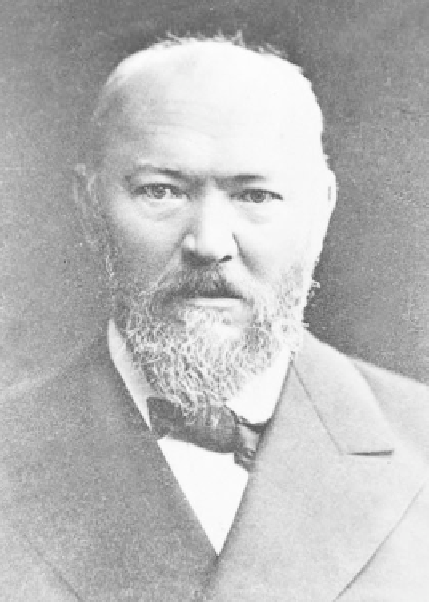Travel Reference
In-Depth Information
of the wealthy merchant class or officials who
objected to their satire. Although Ostrovsky is
most closely associated with plays about the
merchant class, he also embraced other themes.
In
The Forest
(1871) and
The Wolves and the Sheep
(1875), he portrayed the changing mores of his
times, focusing on noble landowners affected by
the abolition of
SERFDOM
, as well as adventurers
seeking to profit from these changes. Ostrovsky's
historical plays borrowed from 16th- and 17th-
century themes. His fairy tales also found reso-
nance with the public and to this day occupy an
important role in the repertoires of many the-
aters. Because of the anticapitalist themes that
could be inferred from his plays about the mer-
chant classes, Ostrovsky's plays were frequently
staged throughout the Soviet era. They provided
a continuity with the prerevolutionary period
that is especially evident in the extent to which
many of the titles of Ostrovsky's plays have
become popular proverbs in everyday spoken
Russian.
Ouspensky, Petr Demianovich
(1878-1947)
philosopher
Ouspensky is best known for his interests in
mysticism and theosophy and for his association
with
GURDJIEFF
. Ouspensky was born into a
prominent intellectual and artistic family in
Moscow. His father was a mathematician and
mathematics played an important role in Ous-
pensky's work. His first book, published in 1909,
was a volume of mathematical philosophy enti-
tled
The Fourth Dimension.
Ouspensky followed
his many interests in Nietzsche, biology, mathe-
matics, and dreams through his own course of
reading. His encounter with theosophy began in
1907, and from that moment on he plunged into
research that would prove the existence of a
universe beyond the material world through
linking mathematical theory with esotericism. In
1908 his studies took him to the Middle East and
then, between 1909 and 1911, into mystical
experiments devoted to exploring the possibility
Aleksandr Ostrovsky
(Library of Congress)
BOEDOV
, and Nikolai
GOGOL
. Working within the
parameters of Gogol's critical realism, Ostrovsky
wrote plays that touched upon the problems of
contemporary society, particularly the merchant
class of the city of
MOSCOW
, whom he often por-
trayed in negative tones. Born and educated in
Moscow, Ostrovsky found employment in the
court system, where he personally encountered
the world of the petty merchant class of
Moscow. In plays such as
Family Affair
(1850),
Poverty Is No Crime
(1854), and
The Storm
(1860),
he satirized this world, portraying it as oppres-
sively patriarchal and backward and rife with
bribery and lawlessness. Written at the end of
the repressive reign of
NICHOLAS I
and before the
onset of the more liberal climate of the Great
Reforms of
ALEXANDER II
, many of these plays
were banned by the censors, often at the request


Search WWH ::

Custom Search